Marcos jewels used to tackle Philippines corruption
- Published
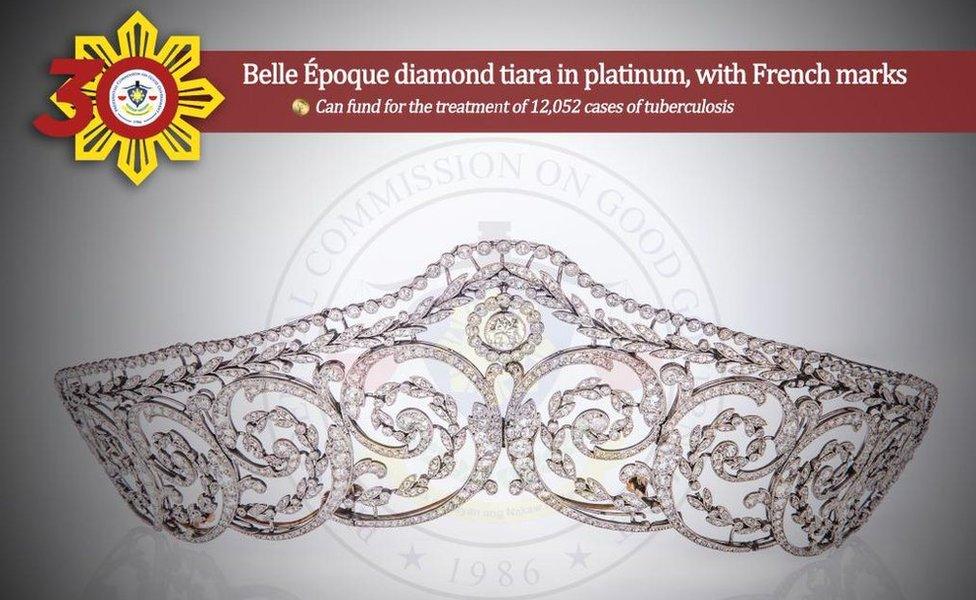
Each piece of jewellery is accompanied by a description of how the cost could instead have been used to improve life for people in the country
A "virtual exhibit" of jewellery once owned by former first lady Imelda Marcos is being used as an anti-corruption campaign in the Philippines.
The jewels were seized by US Customs in 1986 when she and her husband, Ferdinand Marcos, fled to Hawaii after the military leader was overthrown.
The government said the campaign would "remind the present generation of the excesses" of the Marcos era.
The Marcoses, and Imelda in particular, were known for their love of luxury.
The family and associates are estimated to have amassed more than $10bn (£6.1bn) in property, jewellery, cash and other assets during their time in power. But Imelda Marcos has long denied embezzlement.
She was found guilty on corruption charges in the mid-1990s and sentenced to a minimum of 12 years in prison, but the conviction was overturned, external on appeal.
The postings of the jewellery on Twitter, external and Facebook, external come ahead of an election in May in which three members of the family are running in a remarkable political comeback.
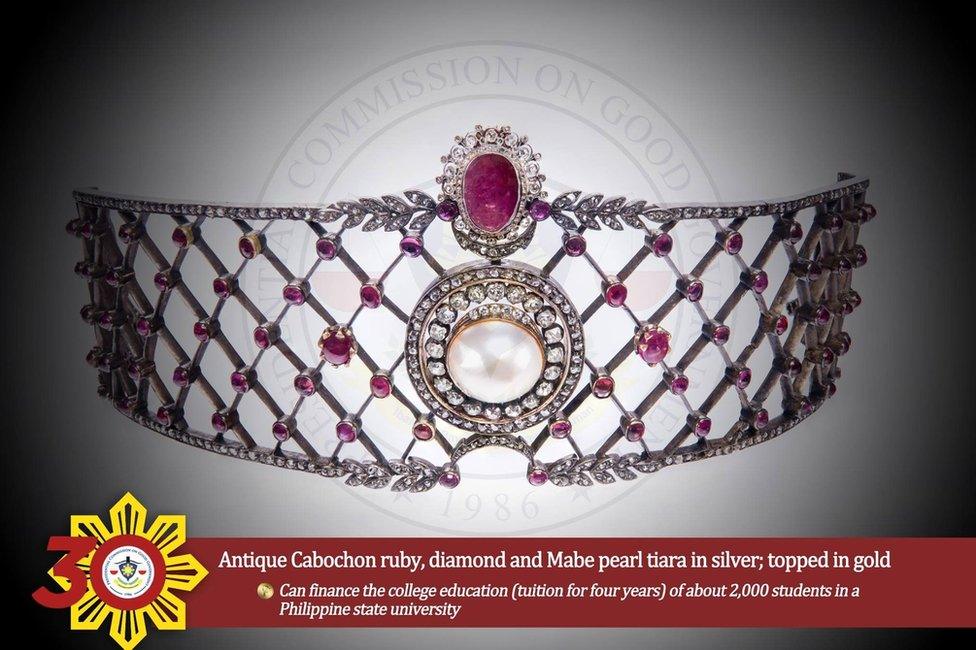
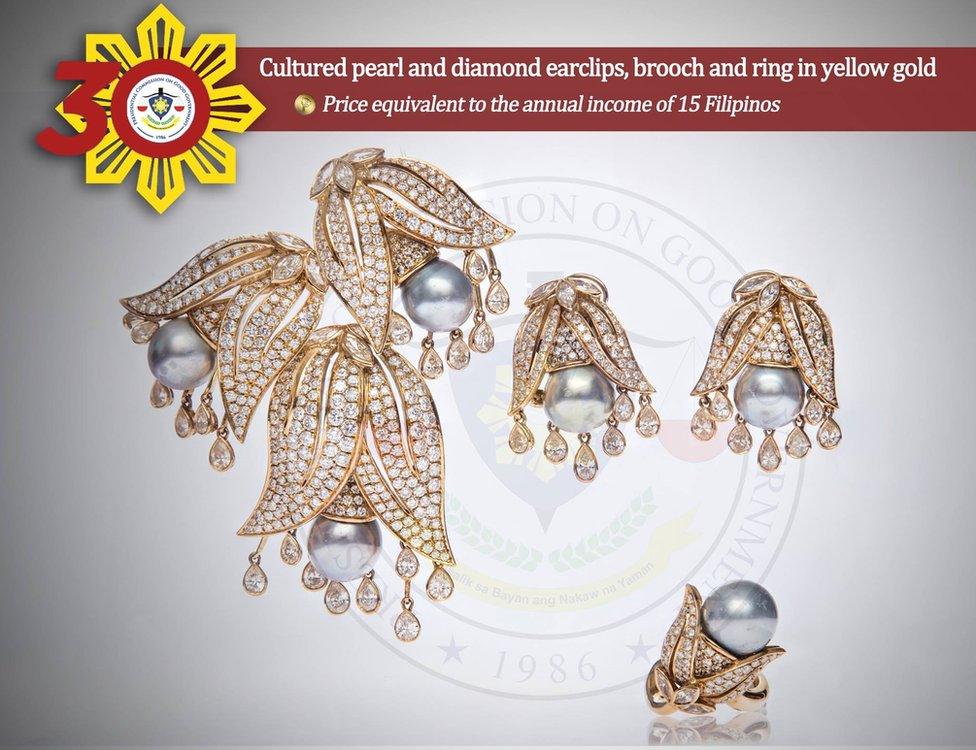
The commission said these earrings were "equivalent to the annual income of 15 Filipinos"
The Presidential Commission on Good Government (PCGG, external) has been posting pictures of the jewels online since 16 March, under the title: A Story of Excesses.
Each dazzling item is accompanied by a description of how the cost could instead have been used to improve life for people in the country.
An "antique tiara with cabochon ruby, diamonds and mabe pearl", for example, could have paid for four years of university education for 2,000 students, it says.
The government has announced it plans to auction off the Marcos jewels, which are valued at more than $21m (£14.5m).
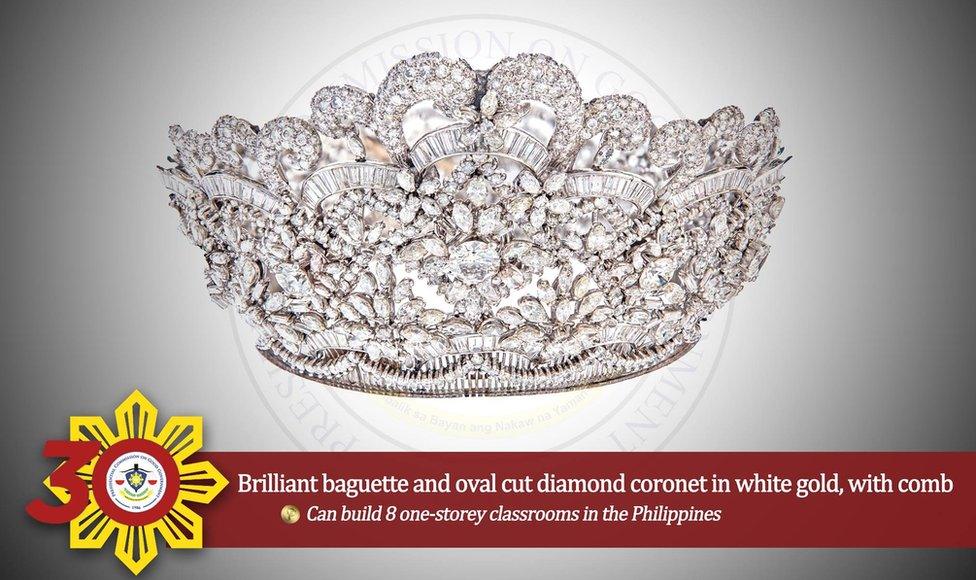
The Marcoses were allowed to return to the Philippines when Ferdinand Marcos died in 1989.
Ferdinand Marcos Jr. (known as Bongbong), already once a senator, is running for vice-president; Imelda Marcos herself is hoping to be re-elected to Congress; and her eldest daughter Imee Marcos is running for another term as governor of Ilocos Norte - her late father's political home turf.
Responding to the online exhibition Ferdinand Marcos claimed it was attempt to derail his campaign.
"Why are they doing this now, after 30 years? They are really doing this because of politics. That is very clear," he said, according to local media, external.
Critics blame their comeback on a young population that has little memory of the years of abuses.
Supporters of the charismatic family say the Philippines needs strong leadership to overcome its social and economic problems.
- Published30 September 2014
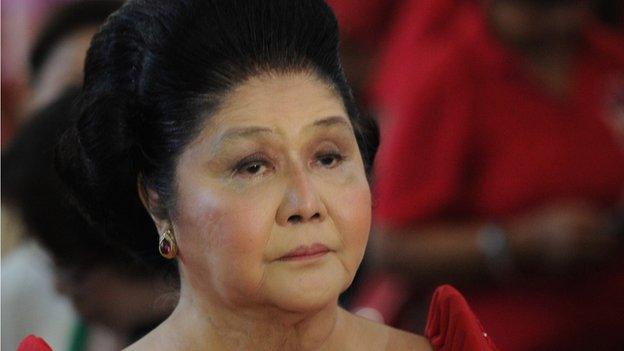
- Published15 February 2016
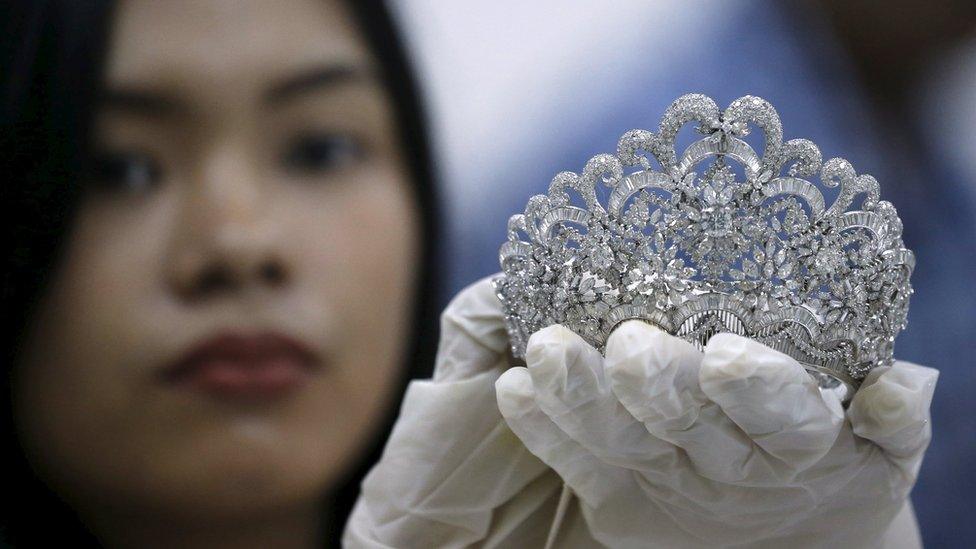
- Published24 October 2012
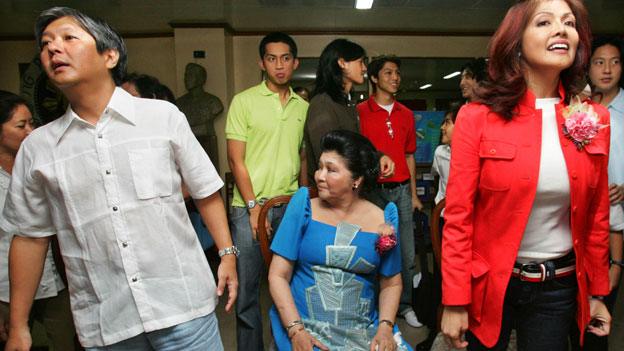
- Published25 January 2013
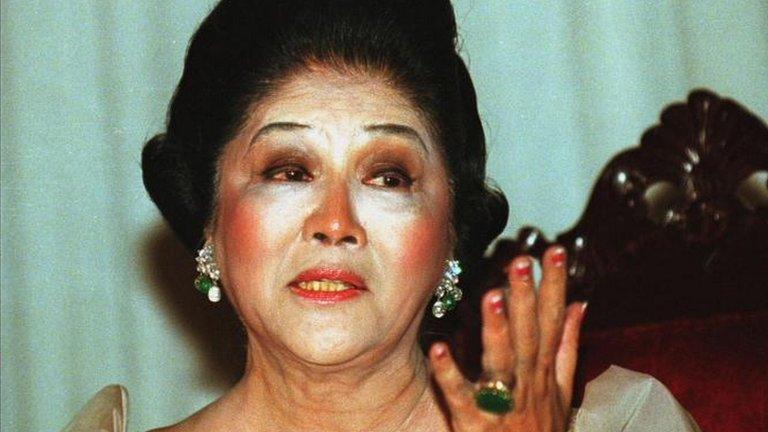
- Published17 February 2016
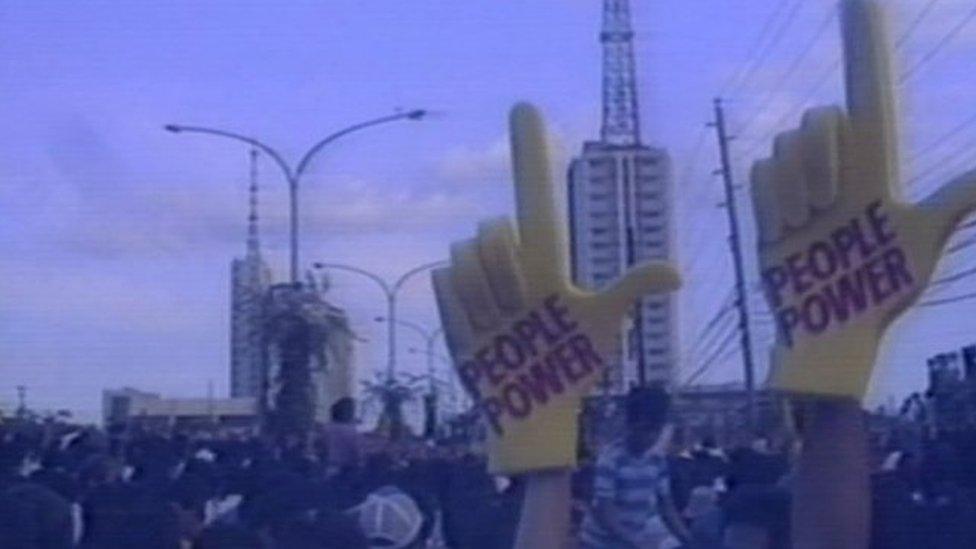
- Published24 February 2011
- Published9 January 2018